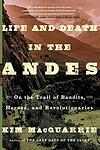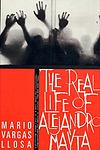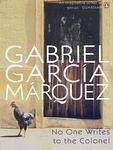Top 20 Latin American Books To Read Before You Die
This is one of the 284 lists we use to generate our main The Greatest Books list.
-
One Hundred Years of Solitude by Gabriel Garcia Marquez
This novel is a multi-generational saga that focuses on the Buendía family, who founded the fictional town of Macondo. It explores themes of love, loss, family, and the cyclical nature of history. The story is filled with magical realism, blending the supernatural with the ordinary, as it chronicles the family's experiences, including civil war, marriages, births, and deaths. The book is renowned for its narrative style and its exploration of solitude, fate, and the inevitability of repetition in history.
-
The Savage Detectives by Roberto Bolaño
"The Savage Detectives" is a novel that follows the lives of two Latin American poets, Arturo Belano and Ulises Lima, who are founders of a literary movement called "visceral realism." The book is divided into three parts and is narrated by multiple characters, providing different perspectives on the protagonists. The narrative spans over 20 years, following the poets' journey from Mexico City to Europe, Israel, and Africa, as they search for a mysterious poetess and navigate through the world of literature, sex, drugs, and the complexities of life.
-
The House of the Spirits by Isabel Allende
"The House of the Spirits" is a multi-generational saga that explores the lives of the Trueba family, set against the backdrop of political upheaval in an unnamed Latin American country. The narrative is driven by the family's strong and magical women, including clairvoyant Clara and her granddaughter Alba. The story spans over three generations, weaving together personal, social, and political threads, and is rich in elements of magical realism. The novel explores themes of love, violence, social class, and the struggle for power.
-
The Alchemist by Paulo Coelho
A young Andalusian shepherd named Santiago dreams of finding a worldly treasure and sets off on a journey across the Egyptian desert in search of it. Along the way, he encounters a series of characters who impart wisdom and help guide his spiritual journey. The novel explores themes of destiny, personal legend, and the interconnectedness of all things in the universe. The boy learns that true wealth comes not from material possessions, but from self-discovery and attaining one's "Personal Legend".
-
Death In Andes by Mario Vargas Llosa
"Death in the Andes" is a haunting and atmospheric novel set in the remote Andean village of Naccos, where two soldiers are sent to investigate the mysterious disappearance of three men. As they delve deeper into the village's secrets, they uncover a dark history of violence, political turmoil, and superstition. Blending elements of mystery, political commentary, and magical realism, this gripping tale explores the complexities of human nature and the impact of Peru's turbulent past on its present.
-
Tear This Heart Out by Ángeles Mastretta
Set in Mexico during the early 20th century, this novel follows the tumultuous life of a young woman named Catalina Guzmán. From her arranged marriage to the abusive and philandering General Andrés Ascencio to her passionate affair with the revolutionary Carlos Vives, Catalina's journey is one of love, betrayal, and self-discovery. As she navigates through political turmoil and personal hardships, Catalina's strength and resilience are tested, ultimately leading her to make difficult choices that will shape her destiny. With vivid storytelling and vivid characters, this book explores themes of love, passion, and the pursuit of freedom in a time of social and political unrest.
-
Fictions by Jorge Luis Borges
"Collected Fiction" is a compilation of stories by a renowned author that takes readers on a journey through a world of philosophical paradoxes, intellectual humor, and fantastical realities. The book features a range of narratives, from complex, multi-layered tales of labyrinths and detective investigations, to metaphysical explorations of infinity and the nature of identity. It offers an immersive and thought-provoking reading experience, blurring the boundaries between reality and fiction, past and present, and the self and the universe.
-
The Real Life of Alejandro Mayta by Mario Vargas Llosa
This novel revolves around a failed Peruvian revolution and the man who attempted to lead it, Alejandro Mayta. The story is told from the perspective of a novelist who is researching Mayta's life and the events surrounding the failed uprising. The narrative oscillates between the present and the past, unraveling the complex threads of Mayta's personal history, political beliefs, and the broader socio-political context of Peru. The novel explores themes of truth, fiction, and the blurry lines between them.
-
Hopscotch by Julio Cortázar
This avant-garde novel invites readers into a non-linear narrative that can be read in two different orders, following the life of Horacio Oliveira, an Argentine intellectual living in Paris with his lover, La Maga. The story explores philosophical and metaphysical themes, delving into the nature of reality and the human condition, while also examining the struggles of intellectual and emotional life. The second part of the novel takes place in Buenos Aires, where Horacio returns after La Maga disappears, and where he grapples with his past, his identity, and his place in the world.
-
Aunt Julia and the Scriptwriter by Mario Vargas Llosa
The novel is a semi-autobiographical tale of a young man in Peru who falls in love with his divorced aunt, Julia, while working at a radio station. Their scandalous romance unfolds amidst the backdrop of a chaotic radio station run by a brilliant but unstable Bolivian scriptwriter who churns out daily soap operas. The narrative alternates between the protagonist's real life and the melodramatic world created by the scriptwriter, blending reality and fiction in a humorous and poignant exploration of love and creativity.
-
All Fires The Fire by Julio Cortázar
"All Fires The Fire" is a collection of short stories that explores the complexities of human relationships and the blurred lines between reality and imagination. Through vivid and imaginative storytelling, the author delves into themes of love, desire, and the search for meaning in a world filled with uncertainty. Each story presents a unique and thought-provoking narrative, inviting readers to question the boundaries of their own perceptions and the nature of existence itself.
-
Kiss of the Spider Woman by Manuel Puig
"Kiss of the Spider Woman" is a novel set in an Argentine prison where two cellmates, a gay window dresser and a political revolutionary, share stories to pass the time. The window dresser recounts various films he's seen, which often involve strong, glamorous women, while the revolutionary shares his political ideologies. As they spend time together, they form an unlikely bond, exploring themes of sexuality, oppression, and the power of storytelling.
-
Before Night Falls by Reinaldo Arenas
"Before Night Falls" is an autobiographical work that chronicles the life of a young Cuban man growing up during the political turmoil of the Cuban Revolution. The protagonist, a rebellious writer and poet, grapples with his sexual identity in a society that is deeply homophobic. Despite facing persecution, imprisonment, and exile, he remains defiant and committed to his art and personal freedom. His story provides a candid and deeply personal perspective on the harsh realities of life under Fidel Castro's regime.
-
The Golden Age by José Martí
"The Golden Age" is a heartfelt coming-of-age story set in the late 19th century, following the life of a young boy named José Martí. Through his eyes, readers witness the challenges and triumphs of growing up in a tumultuous time in Cuba's history. Martí's journey is marked by his unwavering passion for justice, his deep love for his homeland, and his relentless pursuit of freedom and equality. This poignant narrative explores themes of identity, patriotism, and the power of hope, leaving readers with a profound understanding of the human spirit and the enduring fight for liberty.
-
The Death of Artemio Cruz by Carlos Fuentes
The novel revolves around the life of a self-centered Mexican media mogul, Artemio Cruz, who is on his deathbed. As he reflects on his past, the narrative shifts between first, second, and third person perspectives, exploring different stages of Cruz's life from his impoverished childhood, his participation in the Mexican Revolution, his ruthless pursuit of power, and his eventual downfall. The book is a critique of the corruption and moral decay in Mexican society following the Revolution.
-
Death And The Maiden by Ariel Dorfman
In a post-dictatorship country, a former political prisoner, Paulina, encounters a man whom she believes to be her former torturer. She takes him captive and subjects him to a mock trial, seeking justice for the atrocities she endured. As the tension escalates, the play delves into themes of truth, revenge, and the complex aftermath of trauma, challenging the audience to question the blurred lines between victim and perpetrator in a society grappling with its dark past.
-
Love in the Time of Cholera by Gabriel Garcia Marquez
This novel follows the story of Florentino Ariza and Fermina Daza, who fall passionately in love in their youth. However, Fermina eventually marries a wealthy doctor, leaving Florentino heartbroken. Despite this, Florentino remains devoted to Fermina for over fifty years, patiently waiting for her husband's death to have another chance at her love. The story is set against the backdrop of a cholera epidemic, serving as a metaphor for the transformative power of love and the destructive power of obsession.
-
The Labyrinth of Solitude by Octavio Paz
This book is a profound and vivid exploration of Mexico's character, culture, and identity. The author delves into Mexico's history, politics, and psyche, examining the country's deep solitude and its impact on the national character. The book provides a comprehensive analysis of Mexican society, its myths, symbols, and rituals, offering a deep understanding of the Mexican people's unique way of perceiving the world. It also discusses the influence of the United States on Mexico and the complex relationship between the two countries.
-
No One Writes to the Colonel by Gabriel Garcia Marquez
This novel centers around an impoverished, retired colonel who has been waiting for many years for the pension he was promised. Despite his increasing desperation and the urging of his wife, the colonel remains hopeful and proud, refusing to sell his only valuable possession, a rooster that he plans to enter in a cockfight. The story explores themes of poverty, pride, and the struggle for dignity amid difficult circumstances.
-
Like Water For Chocolate by Laura Esquivel
This novel is a romantic, magical realism tale set in turn-of-the-century Mexico. It chronicles the life of Tita, the youngest daughter in a traditional Mexican family, who is forbidden to marry due to a family custom that mandates the youngest daughter must care for her mother until death. Tita falls in love with Pedro, who in turn marries her elder sister to stay close to her. The story is uniquely structured around the twelve months of the year, each beginning with a traditional Mexican recipe. The protagonist's emotions become infused with her cooking, leading to strange effects on those who consume her culinary creations.
Latin Times, 20 Books
Latin Times has put together a list of 20 Latin American themed books you must read before you die. Think of it as your bucket list of books.
The themes and genres of the books on this list range from classic, to modern to biography. Each book was carefully selected and thought to be great reads.
Added 6 months ago.
This list has a weight of 38%. To learn more about what this means please visit the Rankings page.
Here is a list of what is decreasing the importance of this list:
- Voters: no voter information
- List: only covers 1 specific large geographical region (Asia, Latin America, etc)
If you think this is incorrect please e-mail us at [email protected].


















